MultiVersus enters a genre that Nintendo has essentially created and reigned over for decades: the platform fighting game. Unlike the kart racer in which Nintendo reigns supreme with Mario Kart but still has some solid competition in a few other studios, nothing is close to capturing the magic of Super Smash Bros., especially when it comes to mixing up characters from a variety of places. Where PlayStation All-Stars Battle Royale and Nickelodeon All-Star Brawl have failed, MultiVersus seems to have the chops to succeed. We took the recent closed alpha for a spin and came away highly impressed.
For those who are unaware, MultiVersus is a platform fighter that intermingles as many of the characters owned or associated with Warner Bros. as possible, melding them into a style that leaves them recognizable but in a style that's unique to the game. It does have one original character in the form of Reindog, but everyone else in the closed alpha's 15-character roster will be familiar to fans of comics and cartoons. Finn and Jake from "Adventure Time" are here, while Tom & Jerry from their titular series are also present, albeit as one character. "Scooby-Doo" sees representation with Shaggy and Velma, and "Looney Tunes" gets Bugs Bunny and the Tasmanian Devil. DC Comics also gets into the mix with Batman, Harley Quinn, Superman and Wonder Woman. The one oddity is Arya Stark from "Game of Thrones," who is a good character but can be jarring to see since she comes from a more mature-rated series compared to the other more kid-friendly fighters.
As demonstrated by Nickelodeon All-Star Brawl, you can have all the characters you want, but none of it matters if there isn't a commitment to getting the presentation right. Luckily, the team at Player First Games has done just that. As mentioned earlier, everyone looks recognizable without clashing styles, and each player's moves, move names, and alternate costumes are on point.
The real difference comes from the audio department. The stages have a good mix of instantly recognizable music, like Danny Elfman's "Batman" 1989 theme as well as original compositions. Every character also has their voices courtesy of the original voice actors playing the modern iterations of each, so you're actually hearing Mazie Williams play Arya versus a stand-in. There are even unique lines that play before and after a fight that are specific to certain match-ups, taking a page from the recent Mortal Kombat games. There's some care in getting this part right, and those who are seeing the game for the first time will come away highly impressed in this aspect alone.
The core mechanics follow other platform fighters quite faithfully. Each fighter has a basic and special attack button, with cardinal directions dictating which attack comes out. You can dodge with the press of a button, and the game revolves around making the opponent accumulate enough damage so the next hit sends them flying out of the level. There are a few tweaks to that formula, including the ability to do an upward special attack twice instead of just once, and the chance to latch on to a wall to save yourself or launch another attack or jump. Also, the game is more focused on reaching a knockout score versus depleting the opposition's stock of lives.
There is one notable omission: blocking. Unlike just about every other fighting game out there, there is no method to block attacks by putting up your arms or conjuring a defensive bubble. If you've always played defensively, this will make you alter your strategies drastically, but you'll feel right at home if you're the more aggressive type who has to constantly remind yourself that blocking exists. It also means that games are much faster, since the lack of turtling techniques means knockouts come at a quicker pace.
With blocking gone, the team has emphasized giving characters some class designations. Bugs Bunny is given a mage designation, while Garnett is a brawler. Wonder Woman gets a tank designation, while Steven Universe is labeled as a support class character. Those labels don't necessarily restrict your play, as every fighter balances out well with one another, but if you're looking for a primer or quick guide on how everyone will act, this is a good start.
The class designations are important since the game's main mode is 2v2 play. The classes give you a better idea of the special abilities, which can become big boons in a fight. For example, Reindog has a tether ability to keep their partners close enough so knockouts become harder. Wonder Woman does something similar in that you can pull your partner toward you if you can reach them with your lasso, but she can also increase defensive stats if she's near a player. Steven Universe can create a healing spot for health recovery, and Arya's face steal ability also works on your partner, so you can copy their moves instead of ones from your opponents.
The presence of classes and team-based abilities makes the game feel quite different from other platform fighters. You can still treat the game like a big free-for-all where only certain people get hurt, but team play becomes more effective when you complement your partner's choices. The approach is fresh since cooperative play is so rare in the fighting game space, and it'll be exciting to see how the approach goes with more players and more pros in tow.
One interesting addition is the presence of perks, which are earned by leveling up your chosen character via gameplay. Some perks are stat-based, like giving your projectiles 5% more damage or doing the same to your overall attack power. Others add something new, like the ability to triple-jump instead of double-jump. Depending on the perk, some get doubled if your partner has picked them as well. On paper, that seems to give players who play with certain characters more often or exclusively a huge advantage over someone who always rotates everyone out or is just starting the game. In practice, the advantage isn't quite so pronounced, as they seem to affect the fight in more subtle ways. You still have a very even chance of seeing someone sans perks completely destroy someone fully loaded up with both general and character-specific perks, so their presence doesn't tip the scales too heavily in one's favor.
Aside from the 2v2 mode, the closed alpha also has a 1v1 mode, where a good chunk of team-based abilities still retain their functionality, albeit to a lesser degree. There's also a free-for-all mode that introduces items to the mix. The items are rather basic instead of necessarily being associated with specific Warner Bros. properties, so don't expect more references. The scoring system is also a little more complicated to understand, as knockouts give you points, but the amount of points seems to vary in inexplicable ways. These kinds of matches can be played online with or against bots, and while it wasn't present in the closed alpha, pure offline local play is also confirmed when the game launches.
Speaking of online play, the performance is quite good. Over the multitude of matches played for the preview, only a handful experienced any sort of networking issues, like minor character warping. A majority of the bouts felt smooth enough that you'd be fooled into thinking you were playing either locally or against bots, and the performance worked well while playing against all opponents, whether they were on PC, PlayStation or Xbox. That bodes well for more competitive players and those looking for a very wide pool of opponents should this performance hold steady when the game gets a wider release.
There is one mystery left to solve, and that's concerning monetization. Based on interviews with other outlets, it seems like the game will only have players spend cash on the season pass and cosmetics. This is one area that makes sense, as the characters have a ton of costume choices in their shows. The Shaggy costume in the season pass shows that the team is willing to go the extra mile to add alternate voice tracks. This is all speculation, as the store is blocked off in the current closed alpha, but if this does turn out to be true, don't expect anyone to come away with a dreaded paid advantage once the game goes live.
With a projected open beta release of July 2022, MultiVersus looks to be the game that can finally be recognized as a real competitor to the king of platform fighting games. The mechanics feel absolutely solid, with some changes that feel well thought out when executed. Even if some of the character choices feel a bit odd, they succeeded in making the characters feel alive rather than soulless. We can't wait to give this some more time when the open beta hits this summer.
More articles about MultiVersus


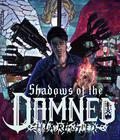
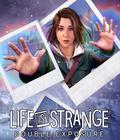
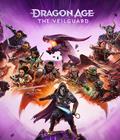
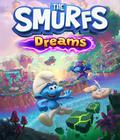
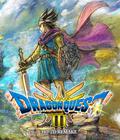
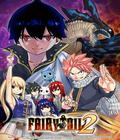
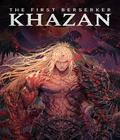

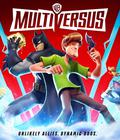 MultiVersus is an all-new free-to-play, platform fighter that introduces a team-based 2 vs. 2 format combined with an ever-expanding cast of iconic characters and legendary universes.
MultiVersus is an all-new free-to-play, platform fighter that introduces a team-based 2 vs. 2 format combined with an ever-expanding cast of iconic characters and legendary universes.





